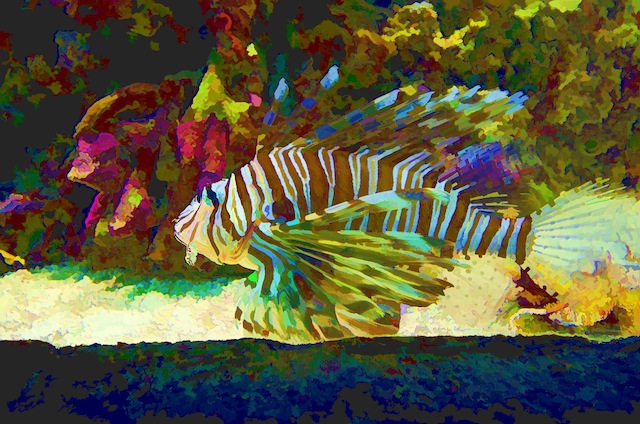On today's menu, the results of our second Surrealist Café community collage. Readers will recall that we asked you to walk into a cafe (or a spot that animals frequent) precisely at 1 p.m. on Saturday, October 29, and record, in whatever medium you chose (poetry, prose, drawing, photography, etc.), your interchange with an animal. We suspect most of you didn't follow the rules about time and space, but nonetheless, these contributors seized the time, and amazed us with their devotion to les animaux. All contributions are (c) 2011 by their individual creators.
* * * *
Suki Kitchell Edwards, passing through New Orleans, USA:
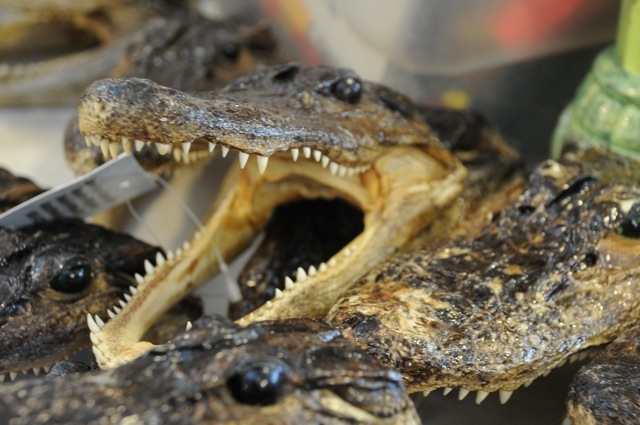
* * * *
Scott MacFarlane, near LaConner, WA, USA:
“Bear Box”
Can replica serve as artifact? The Northwest Indian bentwood box––with stylized bear design wrapped around four sides––hides in the clutter beside the register at the Rexville Grocery. Those pens sticking out the top were not native but reinforce how functionality was a trait of this rich art form.
Down the road from the Swinomish tribal casino, this is the prehistoric land of the Northwest Coast Indian. The red-and-black design with tertiary ovoids portrays a bear. The little ears differentiate it from an Orca design that would display stylized flukes.
A half-dozen miles from here as raven flies, killer whales swim. However, this totemized design––Tlingit perhaps––derives not from here, but from the tribal turf we now call Southeast Alaska. This design style was more formalized than local Salish art.
When I entered the Rexville, three aging hippies sitting at the counter glanced up and resumed talking. The pencil holder had caught my eye. Thirty-three years earlier at the Burke Museum on the UW campus, I had helped touch up these boxes, really a diminutive replica of a native bentwood artifact. Clear cedar had been silk-screened, notched, bent and assembled just down the hall from Bill Holm’s office in the basement. Holm was the non-native who devoted years codifying the principles behind Northwest Coastal Indian Art. He wrote the book.
* * * *
Stuart Balcomb, Venice, CA, USA:
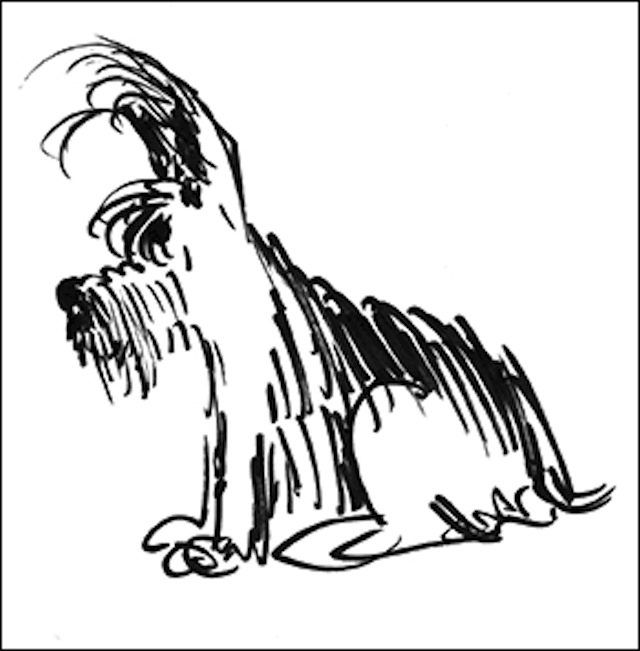
Gaynia
The vet allowed me to hold her
during the injection.
She was deaf, blind, very much in pain.
I know she could sense my heart beating,
her nose against my chest
as her last few pulses faded into memory.
Wife and child couldn't bear to attend,
so I did the deed,
then carried the lifeless cargo back home
where I laid her to rest, deep in the yard,
and toasted her eternal gifts
with a teary glass of Beaujolais Nouveau.
* * * *
Joanne Warfield, "Birds, Flights of Fantasy," Venice, CA, USA:
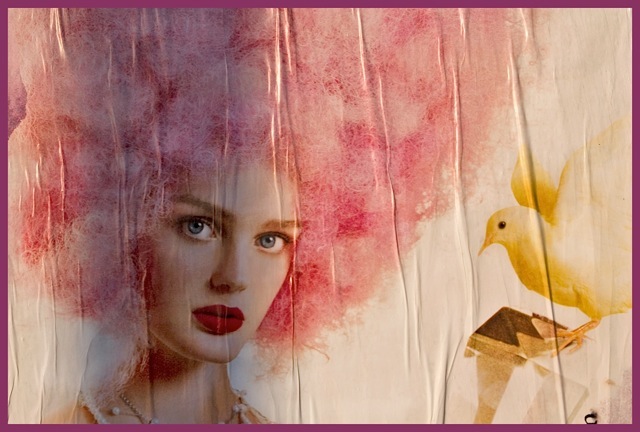
* * * *
Jennifer Genest, Long Beach, CA, USA:
* * * *
Walt Calahan, Westminster, Maryland, USA:
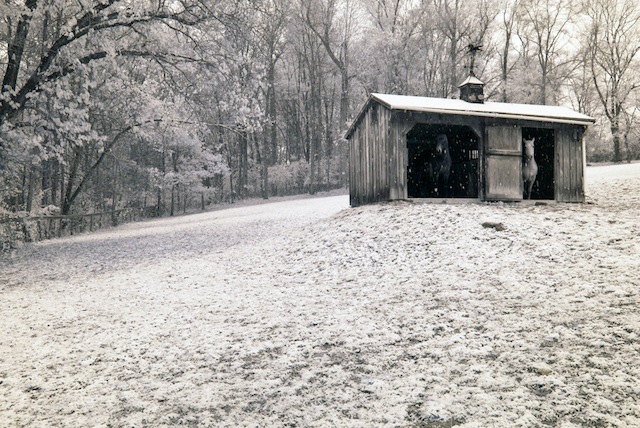
* * * *
Bruce Moody, Crockett, CA, USA:
Les Animaux
(for Amanda Sidonie Moody on her birthday)
There are always animals about.
Here, there, up, down,
always about. Wild.
Beetles.
Butterflies mating in front of everybody.
The squirrel taking over the roof.
The bird you failed to notice
or identify if you did
overreaching all expectations in the sky.
Consider their quiet absolute presence
like a fur you wear and have become accustomed to.
Consider the tortoiseshell cat next door
and the grey one.
and the other.
They are as impervious to us
as we to them.
We live in concourse with them
as we make our ways
cooperatively like folks on crowded streets
Neighbors we never notice.
Neither talking to one another nor to you.
They are indifferent to us as a species
to our names and souls,
dismissive of our wishes,
as we of theirs.
But they abound,
they abound all around us.
In the walls.
Underground as worms.
In the fields as unseen moles.
Ambitious for and seeking, ever seeking,
as we,
Survival.
* * * *
Amy Waddell, Santa Monica, CA, USA:
Walk Lobster
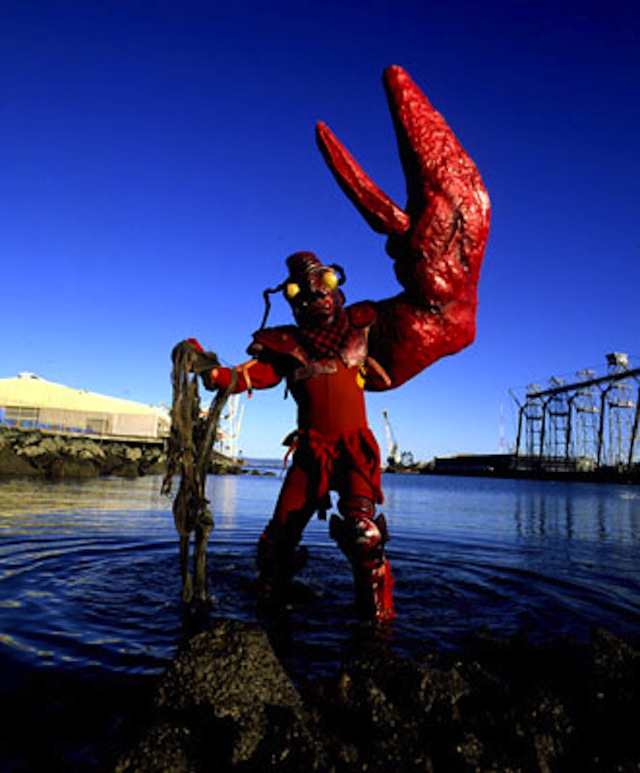
Gérard de Nerval died on January 26, 1855 at the age of 46. That's not to say he did not enjoy a full life. A man who befriends a lobster, names that lobster and has the patience to walk said lobster every day has reaped life's riches in my book. Every day Thibault the lobster and Gérard the poet took air, as it were, in the gardens of Palais Royal in Paris. Sometimes their walks found them skirting the edges of the Seine. It is not clear if the blue silk ribbon that extended from Thibault's craw to Gérard's was necessary, or whether lobster or man determined the course of the walks. It is only sure that man and lobster walked together, sans pincer or boiling water-induced screams, for some years in old Paris.
"I have a liking for lobsters. They are peaceful, serious creatures. They know the secrets of the sea, they don't bark, and they don't gnaw upon one's monadic privacy like dogs do."
--Gérard de Nerval.
* * * *
Edith Sorel, "Day of the Iguana," Key Largo, Florida, USA:
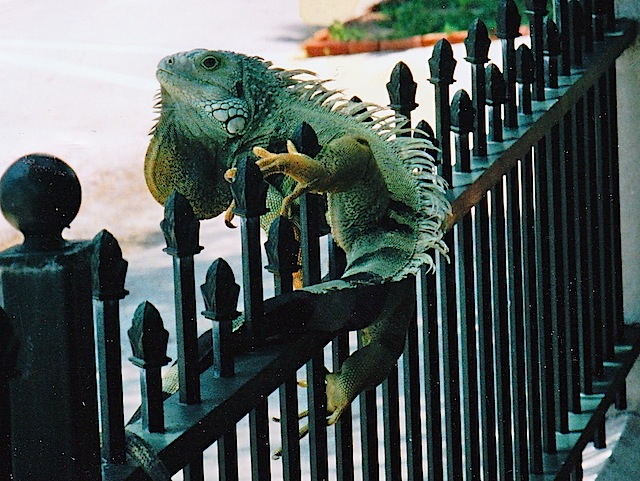
* * * *
Richard Beban, Aquarium Tropical de la Porte Dorée, Paris, France:
